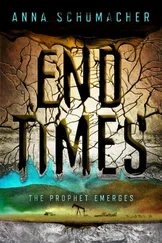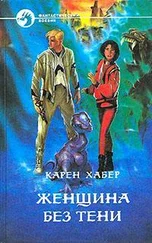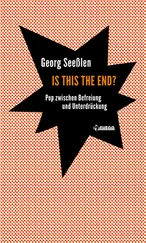“That’s it then?” Uki exclaimed.
Ashima did not reply, focusing on completing the prayer. And then she began it anew, a second time, a third, one hundred and eight times through the cycle. She recalled the twelve constellations and the nine arc segments, or namshas. She thought of the one hundred and eight energy lines that converge to form the heart chakra, and felt warmed by Sushumna on the path to self-realization. In time the cacophony of the disintegrating world returned, and a stifling wind brought hot gusts from several nearby fires, started as rites of purification or sacrifice. So, the girl has relented. Good, Ashima thought. She prayed on. “Bhárgo devásya dhīmahi— ”
With the speed of a trumpet blast, the sky darkened and the air cooled, interrupting Ashima’s meditation. The moon deity Chandra was swallowing up the sun deity Surya.
“Is this your doing, Uki?”
“No.” The girl’s eyes shone defiantly. “Beginning now, each minute of our present is equivalent to nearly one future century. We’re witnessing the total solar eclipse of June 3, 2114. In two hours each passing minute will see four centuries of changes; in three hours, seven hundred and sixty five future years; and in nine hours and twenty-one minutes, the Earth will return to one of the current ice age’s glacial periods, fifty thousand years in the future. By the time—”
“I understand.” Ashima stood up. “No matter what the future holds, I must deal with this moment —that is all we can ever hope to do. Help me find some tulsi for the eclipse.”
Uki frowned. “Holy basil?”
“Yes.”
The girl sighed but proceeded to help. With her enhanced senses it didn’t take long. Basil in hand, Ashima purified a cup of drinking water and proffered it. “Drink with me.”
Uki took a sip and returned the cup. Ashima’s dry lips welcomed the water. She emptied the vessel. “Now we must dip ourselves into the holy waters of Pushkar Lakem,” Ashima said, “and cleanse ourselves from the stains of adharma, unrighteousness.”
The girl followed her lead. They waded in slowly, sharing the spot with several other people. Ashima kept her breathing calm and regular, centering herself on a single idea: Accept the present. Thoughts of the distant past threatened to rupture her serenity, so she pushed them away. The web of interconnected, glimmering lights babbled and droned within her mind, urging caution, warning of impending events. Was that Uki, trying to influence Ashima, or was it a greater future awareness, sharing its wisdom?
And what was this familiar song, playing on top of everything else?
“Dhíyo yó nah pracodáyāt,” Uki chanted, her face composed.
It’s her. Ashima smiled. The girl had adopted Ashima’s favorite mantra. “Well done,” she said. She paused and allowed herself to glimpse the unlikely beauty of the scene. Despite the crowds, she felt still, at peace.
Unbidden, words from the fifth and final chapter of the Brihadaranyaka Upanishad flowered in Ashima’s consciousness: The prayers to the sun by a dying person —and wasn’t that her in this moment?
The face of truth is covered with a golden vessel, and so I cannot see the truth behind. Yes, the face of truth. That face was close now. Ashima could feel its divine breath upon her soul. But she could not see it.
At that moment the deity Surya returned in full glory, a great eye ablaze in the sky. The world seemed to shift and sigh in relief. With all of existence in a state of permanent temporal eclipse, the end of this actual eclipse was even more reassuring than usual.
Without thinking about it, Ashima reached forward and caressed Uki’s hair, dank from the lake. It smelled rich, like jasmine oil. Minutes passed, or hours. “It is time,” one of them said, and they both stirred. They retreated from the lake, its waters shimmering with reflected afternoon light. Every instant brought impossible, yet inevitable, changes. The weather, the people, the very lake, all transmuted into nearly infinite versions of themselves, all of them existing at once. I can see only the glare of the vessel of gold that is covering the light of truth. Ashima imagined this truth deep within the lake’s waters, in a secret place untouched by the tides of transformation. She dared not look up to see what machines or catastrophes were creating the terrible thunders and darting shadows high above.
O glorious one! Lift this lid of gold. Withdraw your rays. Uncover this lid and enable me to behold you as you are in essence, so that I may commune myself with your being.
“Don’t be afraid,” Uki said, perhaps speaking for her own sake as much as for Ashima’s. They moved away from the central mass of people.
“Let us sing to Shiva of conquering death,” Ashima said. She pulled the girl towards her.
“The future devours the present,” the girl said. “The world is forever ending, and the sound of its death is a single word: Now. I can help you see the truth inside the golden vessel. Join me.”
Ashima considered her words. “‘In my beginning is my end.’ What greater truth is there?”
“In the water, you meditated on the nature of the present moment. But I could tell there were other thoughts inside you, deep within, which you did not allow to surface.”
“Yes,” Ashima admitted. “Distractions.”
“They were memories, Ashima. Memories of yourself as a young girl, about my age, being taught to perform charitable acts, no matter the circumstance.”
Was that so? Ashima had to concede the possibility. Uki’s words created a strange lifting of energies inside her, as though the eclipse had only now truly ended. This realignment of internal forces pushed against her exhaustion, budging it this way and that. Ashima closed her eyes. “Let us sing the Mahamrityunjaya mantra. Oṁ tryambakam yajāmahe sugandhim puṣṭi-vardhanam— ”
The girl joined in, following her rhythms. Ashima pressed the girl against her chest. Their voices became as one and they sang and sang, and when the words ran out they merely hummed, and when the music ran out, their breathing created its own harmonious melody.
At last Ashima opened her eyes.
The golden vessel had lifted, and the face of truth was before her.
“Thank you,” she whispered.
Uki’s eyes widened and her thin lips parted.
In the eternity of the instant that followed, the old woman and the girl ceased to be.
Last and First Men
— OLAF STAPLEDON —
EDITOR’S INTRODUCTION
OLAF STAPLEDON’S LAST AND FIRST MEN, first published in 1930, is surely the ultimate end-of-the-world novel. Not a novel, actually, for its form is not that of fiction but that of a chronicle of the next two billion years of human life; it has no real plot, no characters except as incidental figures as the long narrative of the human race’s future unfolds, no dialogue. In form it is a work of history, of sorts, a sober and solemn account of the passing eons to come, written in much the same tone as might be used for a chronicle of our ancestors’ way of life in the Pleistocene or of the development of constitutional theory in Great Britain. It’s a sign of Stapledon’s great artistry that he manages to make his history of the future such compelling reading. He does it by taking the entire unimaginably vast future as his subject—and then by imagining the unimaginable.
Though he is telling us of the colossal events to come, it is clear right away that Stapledon is not really a prophet, for the early chapters of this extraordinary book are an attempt to depict the very near future, the next few hundred years, and right from the start his picture of what is imminent in the world is awry. Writing in 1930, he fails to foresee the rise of Hitler, speaks of the Germany of the mid-twentieth century as the most enlightened nation of Europe, and envisions a horrendous war between England and France that leaves both countries devastated. He misses the development of atomic energy, too, giving us only the invention of an explosive weapon so terrible that everyone agrees to destroy the formula for it, and does. And he sees America and China as locked in a strange alliance as the two great powers of the world three or four hundred years hence.
Читать дальше











